Film Technica: Our favorite movies of 2024
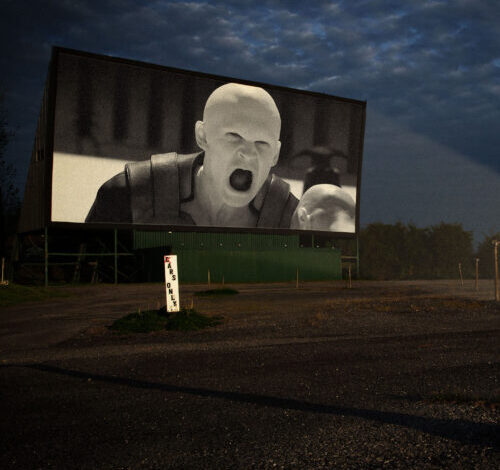
lighting up the silver screen
This year’s list features quite a bit of horror mixed in with the usual blockbuster fare—plus smaller hidden gems.
Credit:
Aurich Lawson | Getty Images
Editor’s note: Warning: Although we’ve done our best to avoid spoiling anything too major, please note this list does include a few specific references to several of the listed films that some might consider spoiler-y.
This was the year that Marvel Studios hit the pause button on its deluge of blockbuster superhero movies, after rather saturating the market in recent years. It proved to be a smart move: the only Marvel theatrical release was the R-rated Deadpool & Wolverine, a refreshingly irreverent, very meta take on the genre that delighted audiences and lit up the global box office. Perhaps audiences aren’t so much bored with superhero movies as becoming more discriminating in their choices. Give us a fun, fresh take and we’ll flock back to theaters.
Fewer superhero franchise entries meant there was more breathing room for other fare. Horror in particular had a stellar year, with numerous noteworthy offerings, touching on body horror (The Substance), Satanic Panic (Late Night with the Devil), psychological horror (Heretic), hauntings (The Oddity), a rom-com/revenge mashup (Your Monster), an inventive reimagining of a classic silent film (Nosferatu), and one very bloodthirsty child vampire with a wicked sense of humor (Abigail). Throw in a smattering of especially strong sequels (Inside Out 2, Dune: Part 2), a solid prequel (Furiosa), and a few hidden gems, and we had one of the better years for film in recent memory.
As always, we’re opting for an unranked list, with the exception of our “year’s best” vote at the very end, so you might look over the variety of genres and options and possibly add surprises to your eventual watchlist. We invite you to head to the comments and add your favorite films released in 2024.
The Fall Guy
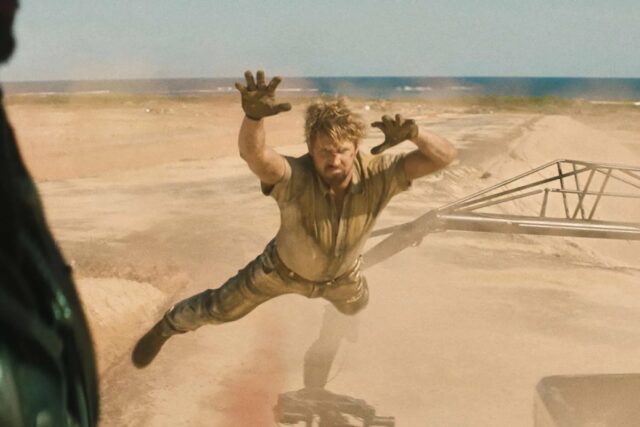
Credit:
Universal Pictures
I love to mentally check out with a good movie when I fly. So, on a recent trip to New York City for Technicon, I settled into my narrow, definitely-not-my-couch airline seat and fell in love with The Fall Guy, a movie based on the TV show I remember watching as a teen back in the ’80s.
Directed by David Leitch (Deadpool 2, the John Wick franchise), The Fall Guy is pure entertainment—part rom-com, part action, funny as heck, and super meta. Leitch is perfectly suited to direct a film about a stuntman, having been one himself (he was Brad Pitt’s stunt-double five times). And the actors clearly are having a ton of fun roasting the industry, while also paying tribute to the invisible heroes of any movie: the stunt performers.
A year after a nearly fatal fall (yeah, pun apparently intended), stuntman Colt Seavers (Ryan Gosling) is persuaded by his former producer, Gail (Hannah Waddington), to come to the rescue for a film his ex-girlfriend, Jody (Emily Blunt), is directing after the lead actor and his stuntman disappear. Gail asks him to find them to save the film and Jody’s career. The exaggerated stunts, meta jokes (Tom Cruise, “I do my own stunts”), unicorn, callbacks to favorite films (Notting Hill etc.), and unflagging plot made for a quick flight for me. The chemistry between Blunt and Gosling makes the movie and provided an at-times hilarious-yet-believable romantic tension. (I’ll never forget the giant monster hand nor the air pistols.) And the cameo by the real fall guy left me elated.
A few years back, also on a flight, I remember watching Gosling’s comedy chops in The Nice Guys and laughing aloud several times (Always awkward. Sorry seat mates.). I did the same with The Fall Guy as well. But could my enthusiasm for the movie get anyone in my family to watch it with me on our giant COVID-purchase TV with the surround sound and subwoofer on high?? Not for a solid month. But once I did, they were sold.
—Kerry Staurseth
Hit Man
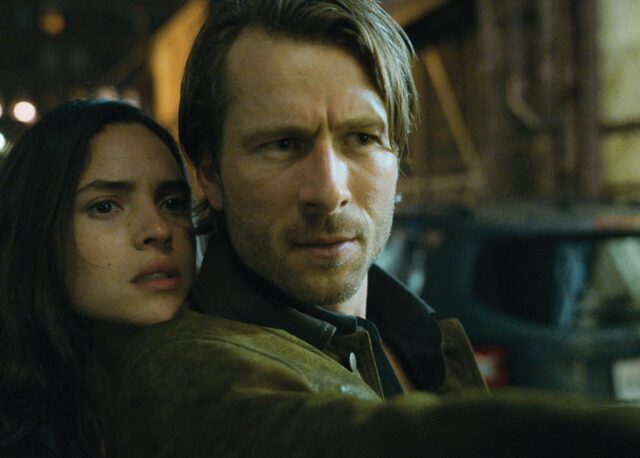
Credit:
Netflix
I grew up in Richard Linklater’s Texas, and there seems to be something—the characters, the story, the setting, or the aesthetic—that resonates with my personal experience in most of his films. I can’t say the same for Hit Man, but this isn’t meant to be a criticism. Instead, Linklater’s Hit Man offers nearly two hours of pure escapism that many of us need. It’s smart, with witty dialogue, more than a few moments of side-splitting humor, and a story that is too good to be true, although the premise is based on true events.
Gary, played by Glen Powell (who also co-wrote the screenplay with Linklater), is a chameleon. Gary starts the film as a meek, somewhat nerdy college professor, but circumstances quickly force him into the uncomfortable position of becoming an undercover police informant. As we learn early in the film, this involves portraying a fake hitman to rope suspects into contract killing schemes and then prosecution. While I may question the legality or ethics of this setup, it creates a canvas for Linklater and Powell to create funny, sympathetic characters thrust into situations that, while far-fetched, somehow seem believable.
Ultimately, Hit Man provides a laboratory for character development for the audience and within the film itself. In the film, Gary’s academic background helps him craft characters to match the circumstances and attitudes of each of his targets. Gary’s hitman personas can turn up the charm, abrasiveness, or faux bravado as the situation requires it. Gary reinvents himself at every turn, showcasing Powell’s acting range. That is, until Gary runs into Madison, portrayed by Adria Arjona. Then, things become a little too real for Gary, and you’ll have to watch the film to see what happens next.
—Stephen Clark
Heretic
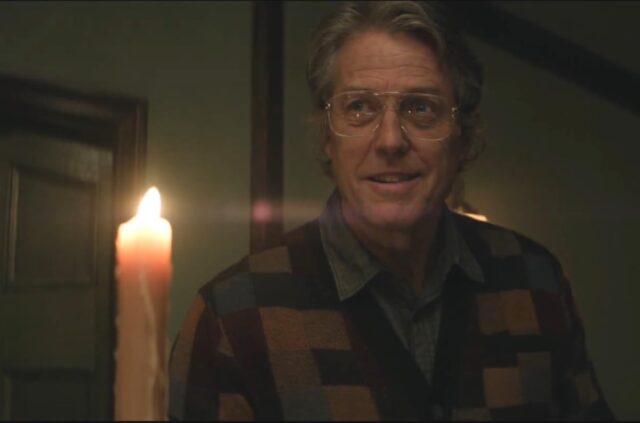
Credit:
A24
Hugh Grant launched his career playing charmingly self-effacing rom-com heroes (cf. Four Weddings and a Funeral, Notting Hill). But in recent years, he’s embraced his darker side, playing roguish villains in films like The Gentlemen and Dungeons & Dragons: Honor Among Thieves, as well as for the BBC miniseries A Very English Scandal. Heretic gives him his most disturbing role yet.
Grant plays Mr. Reed, a reclusive man who invites the Mormon missionaries who come knocking on his door inside for some of his wife’s blueberry pie. But Sister Barnes (Sophie Thatcher) and Sister Paxton (Chloe East) soon realize there is no Mrs. Reed, that delicious blueberry smell is from a candle, they have no cell phone signal, and they are locked inside with a lunatic. They must figure out how to escape from the basement dungeon in which Reed traps them, a torturous environment in which to test their faith.
Heretic has its share of blood and violence, but the focus is more on the psychological trauma inflicted on the young women. And its treatment of the Mormon faith is surprisingly nuanced for the horror genre. Still, it’s Grant’s subtly sinister performance that really makes the film: He brings just a hint of his trademark rom-com charm to the role, which somehow makes everything he says and does doubly chilling.
—Jennifer Ouellette
Tuesday

Credit:
A24
This quietly devastating indie fantasy drama stars Julia Louis-Dreyfus as Zora, a mother whose 15-year-old daughter Tuesday (Lola Petticrew) is confined to a wheelchair with an incurable terminal disease. The fantastical element is Death, who comes to release Tuesday from her suffering in the form of a talking macaw that can alter its size at will. But Zora isn’t ready to let her daughter go; she swallows Death to keep her daughter alive—with the added complication that now nobody can die.
At its heart, Tuesday is an unsettling fable about human mortality and learning not just to confront, but to embrace, Death. That’s a pretty heavy theme, and the film offers no pat, easy answers in its resolution. But first-time director DainaO.Pusić brings a light touch to the melancholy, bolstered by Louis-Dreyfus’ courageous performance.
—Jennifer Ouellette
The Substance
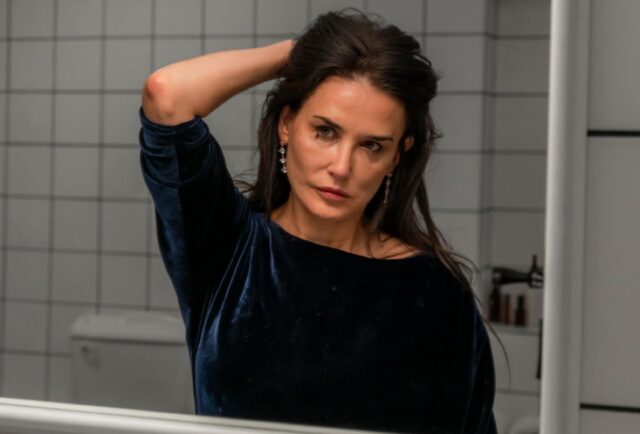
Credit:
Mubi
Listen, I’m not here to convince you that The Substance changed my life, but it’s been a while since a modern sci-fi/horror movie fixated on the fear of death and aging made my skin crawl, so like many viewers in 2024, I was itching to press play. Demi Moore stars as Elizabeth Sparkle, a 50-year-old fitness icon who foolishly injects an experimental drug to maintain her celebrity and quickly regrets birthing a younger double (played by Margaret Qualley), whom she now must split her life with.
Between firm butts flexing and gory mutations emerging, Moore’s and Qualley’s characters clash, forgetting they are “the one” and spiraling toward doom. And while most body horror movies are viewed as gratuitous, The Substance lives up to its title. Somehow, through a nauseating cascade of increasingly grotesque distortions of the human form, the movie morphs into a meaningful satire on society’s stance that older women are irrelevant—blowing a kiss into the camera at the genre’s past tendency to objectify female characters.
—Ashley Belanger
Rez Ball

Credit:
Netflix
This is a classic feel-good sports movie that manages to seem both familiar and fresh, thanks to its setting on a Navajo reservation. (It’s based on the nonfiction novel Canyon Dreams by Michael Powell.) Rez Ball follows one season of the Chuska Warriors, a Native American high school basketball team competing for the state championship. Their star player is Nataanii (Kusem Goodwind), whose mother and sister were killed by a drunk driver the prior year. Nataanii has been struggling with his grief ever since, and when he doesn’t show up for practice one day, the team learns he committed suicide.
It’s up to coach Heather (Jessica Matten), a former WNBA player, to help her team recover from the shocking loss and regroup to finish the season. She names Nataanii’s best friend, Jimmy (Kauchani Bratt), as team captain and employs some novel team-building exercises—most notably a shepherding task in which the team must work together to bring sheep down from a mountain and back into their enclosure. Then there’s her clever strategy of training the team to call all their plays in their native language—shades of the World War II “code talkers.” (There’s even a sly humorous reference to the 2002 Nicolas Cage movie Windtalkers in between all the frybread jokes.)
Director Sydney Freeland hits all the familiar notes of this genre and ably captures the basketball sequences—is there really any doubt we’ll have a happy(ish) ending? Yet the film earns its payoff, driven not by genuine suspense, but by the sheer determination of the team members and how they bond to overcome their grief and bring some joy out of their shared tragedy.
—Jennifer Ouellette
Oddity
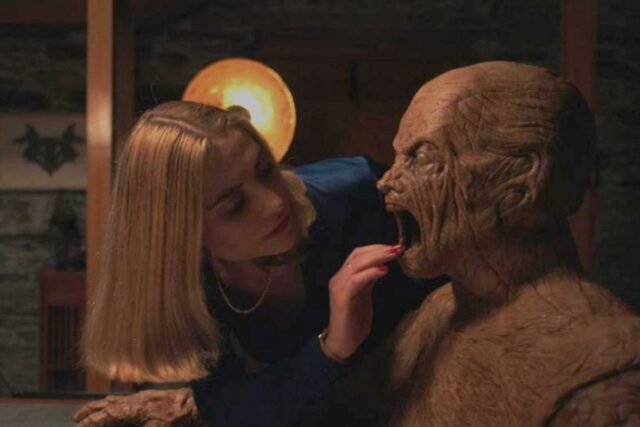
Credit:
Shudder
Oddity is a pitch-perfect supernatural thriller that never should have worked. Writer-director Damian McCarthy has explained that the movie comprised “a mix of a lot of old ideas” that he “could never find a home for.” That hodgepodge storytelling approach could have been a forced recipe for disaster if McCarthy wasn’t such an undeniable master of tension. Telling the story of a psychic medium-antiques dealer desperate to divine the events leading to her twin sister’s shocking murder in an abandoned Irish manor, the movie managed to feel fast-paced while drawing out an unrelenting sense of dread.
The bulk of that tension comes from a haunted wooden man that remains onscreen and barely ever moves—leaving the audience painfully stuck anticipating the moment when the nightmarish figure will spring to life. With slasher movie elements and twists as jarring as the wooden man’s startling features, Oddity had some horror fans within minutes smashing pause to recover from the brutal opening scene before returning to finish McCarthy’s curious haunted house tour de force.
—Ashley Belanger
Abigail

Credit:
Universal Pictures
Six criminals get more than they bargained for when they are hired to kidnap the young daughter of a wealthy underworld kingpin: budding ballerina Abigail (Alisha Weir). Joey (Melissa Barrera) is the only member to be kind to their captive, clearly bothered by the fact that their target is a child. Abigail responds to that kindness with an ominous sweetness: “I’m sorry about what’s going to happen to you.”
So begins one of the goriest and funniest vampire rampages to find its way to the big screen, as the Undead Abigail takes brutal revenge on each of her kidnappers in turn. The carnage is truly next-level, including one infamous scene in which Joey wades through a literal pool of bloody, rotting dead bodies—all victims of Abigail’s ferocious killer instincts. There are some insane plot twists, plenty of perfectly timed humorous moments, and terrific performances from the ensemble cast, especially Weir. If horror comedies are your jam, Abigail is an excellent addition to the genre.
—Jennifer Ouellette
Furiosa: A Mad Max Saga
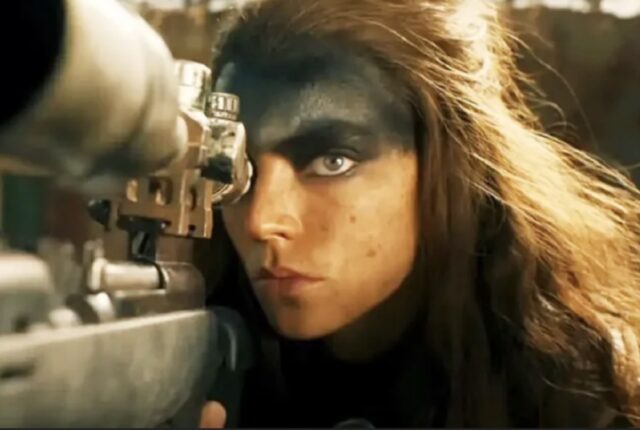
Credit:
Universal Pictures
A nine-year wait between franchise films is, more often than not, an indication that the follow-up can’t meet some lofty expectations of what came before it. But that’s not the case for Furiosa.
Although it’s not the same white-knuckle thrill ride as 2015’s Fury Road, Furiosa gives us another mostly mute protagonist in an expertly crafted action film that overlaps as a revenge flick. While Anya Taylor-Joy delivers a cold, steely interpretation of the eponymous protagonist, it’s the object of her revenge, Chris Hemsworth’s villain Dementus, that offers a new variation to the typically bleak wasteland: levity.
Hemsworth relishes his chance here to show another side of his acting chops, and the result is one of the funniest and zaniest villainous performances in recent memory. Dementus’ malice is matched by his penchant for delivering self-aggrandizing speeches, which are a nice reminder that, even as the world fell, not everyone lost their sense of humor.
—Jacob May
I Saw the TV Glow
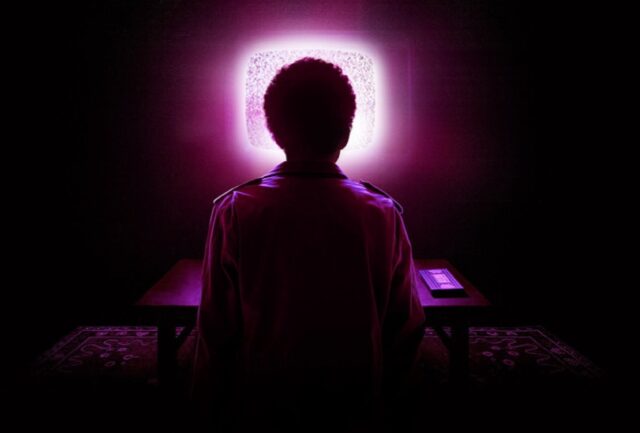
Credit:
A24
As anyone who’s spent years rewatching a beloved sci-fi/fantasy show could likely glean from its ethereal title, I Saw the TV Glow was made to immerse viewers in the sort of complex mythology that keeps the most engaged superfans glued to the screen. Surreally blurring the lines between TV fiction and reality, the A24 film follows an alienated teen boy who deeply bonds with an older female classmate over a monster-of-the-week TV show that comes on past his bedtime.
What starts at a sleepover evolves into an existential nightmare suggesting that the boy’s truth might be a fiction constructed by the “Big Bad” villain from his favorite TV show. This absurd possibility follows the boy as he grows into a man with his own family, all while continuing to take comfort in his all-time favorite TV show. The mesmerizing conclusion injected a disturbing sense of wonder into 2024, leaving some viewers as slack-faced as the boy was when he finally got to watch the late-night TV show that he somehow knew would light him up inside.
—Ashley Belanger
Thelma

Credit:
Magnolia Pictures
Elderly people are so often invisible in our youth-oriented society, so it’s nice to see two 90-something characters take center stage in this charming comedy-drama written and directed by Josh Margolin. June Squibb plays the titular Thelma, who gets taken in by a phone scammer pretending to be her grandson Danny (Fred Hechinger) to the tune of $10,000. The police won’t help, but Thelma has a P.O. box address as a clue and sets out to get her money back.
Thelma enlists the help of her estranged friend Ben (Richard Roundtree, in his final role), who is eager to escape his assisted living facility for one last adventure, and the two set off on Ben’s two-person scooter. Wacky hijinks and personal growth and enlightenment ensue. The film was inspired by a conversation Margolin had with his own now-deceased grandmother, and that personal experience is the key to Thelma‘s warmth, humor, and authenticity. It’s a lovely twist on the classic road movie and well worth a watch.
—Jennifer Ouellette
Woman of the Hour
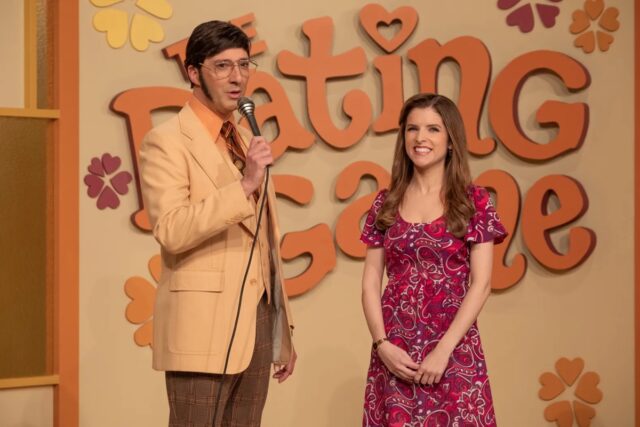
Credit:
Netflix
In the late 1970s, serial killer Rodney Alcala interrupted his murder spree to make a 1978 appearance on The Dating Game and actually went out on a date with bachelorette Sheryl Bradshaw—who naturally had no idea the charming man who’d won her over with his answers was, in fact, a psychopath. It might seem like an odd bit of trivia on which to base a film, but Anna Kendrick came across Ian MacAllister McDonald’s initial screenplay as the actress was gearing up to make her directorial debut with Netflix and snatched it up.
Kendrick also stars as Sheryl, a struggling LA actress who is persuaded to go on The Dating Game by friends, and her typically winsome, spunky performance—and able direction— lifts Woman of the Hour to the next level. Perhaps the best part of the film is that it doesn’t linger overmuch on the killer or glorify his horrific deeds. The focus stays squarely on Sheryl and a woman in the audience named Laura (Nicolette Robinson), who recognizes Rodney (Daniel Zovatto) as the man last seen with her missing best friend. It’s a well-done, quietly thrilling period piece that bodes well for Kendrick’s future as a director.
—Jennifer Ouellette
Your Monster
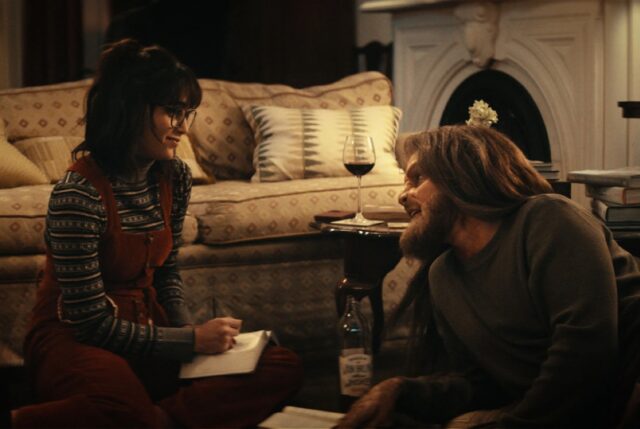
Credit:
Vertical Entertainment
It’s been quite a year for Melissa Barrera, who followed up her standout Final Girl performance in Abigail with another star turn in the decidedly offbeat Your Monster—part romantic comedy, part horror/revenge fantasy, weaving in such disparate influences as the late ’80s TV series Beauty and the Beast and classic Broadway musicals like A Chorus Line. It’s based on a 2019 short film by writer/director Caroline Lindy, inspired by Lindy’s one-time boyfriend breaking up with her when she received a cancer diagnosis.
Barrera plays Laura, an actress who also loses her boyfriend after a cancer diagnosis—plus he reneges on his promise to let her audition for the musical she co-wrote—and goes back to her childhood home to recuperate. There she encounters the proverbial Monster in the closet (Tommy Dewey), who is none too pleased about suddenly having a “roommate” again. At first he tries to scare her, but soon they’re bonding over old movies and Chinese takeout; Monster might just be the ideal boyfriend she’s been looking for.
Of course, Monster is also very much a manifestation of Laura’s psyche, particularly her subsumed rage. Naturally they plot revenge on her selfish ex, and when it comes, it’s everything a jilted lover could want from the experience. Your Monster can’t quite decide on a tone, shifting constantly between comedy and horror, love and revenge. But that’s part of what makes this quirky film so appealing: Lindy isn’t afraid to take creative risks, and she makes it all work in the end.
—Jennifer Ouellette
Will and Harper
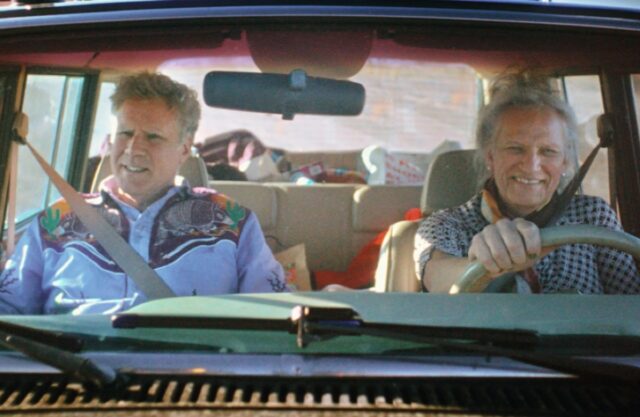
Credit:
Netflix
A few years ago, comic actor Will Ferrell was on-set filming a movie when he received a surprising text from Harper Steele, a close friend of some 30 years, dating back to their time together on Saturday Night Live. Steele informed him of her gender transition. Ferrell’s response was to organize a road trip for the two of them, starting in New York City, where they first met, hitting stops in Washington, DC, Indiana, Illinois, Oklahoma, and Amarillo, Texas—documenting the journey all along the way.
The result is Will and Harper, a surprisingly sweet, refreshingly frank, and thought-provoking film that celebrates an enduring friendship. There’s never a question of Ferrell not accepting his friend’s transition, but there are some awkward growing pains. The pair don’t shy away from more difficult conversations, peppered with humor, while downing cans of Pringles, and it’s that well-meaning honesty that keeps the film grounded and centered on their relationship, without falling into didactic preachiness.
—Jennifer Ouellette
Wicked Little Letters
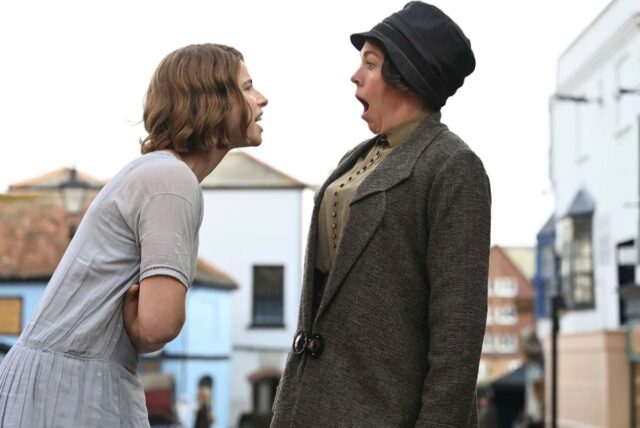
Credit:
StudioCanal
Trolling didn’t begin with social media. Back in the 1920s, several residents of the seaside town of Littlehampton in England began receiving poison pen letters rife with obscenities and false rumors. It became known as the Littlehampton libels, with the culprit revealed to be a 30-year-old laundress named Edith Swan, who tried to pin the blame on her neighbor, Rose Gooding, until she was found out. (Poor Gooding actually served over a year of jail time before she was exonerated.)
Wicked Little Letters is the fictionalized account of those events, starring Olivia Coleman as Edith and Jessie Buckley as Rose, emphasizing the complicated relationships and psychological foibles of the central characters. Even if you know nothing about the case, we learn early on who the true culprit is, and the film then becomes a cat-and-mouse game as Rose’s allies try to prove Edith is the true poison pen. The true enjoyment is watching everything play out with equal parts humor and pathos.
—Jennifer Ouellette
Nosferatu
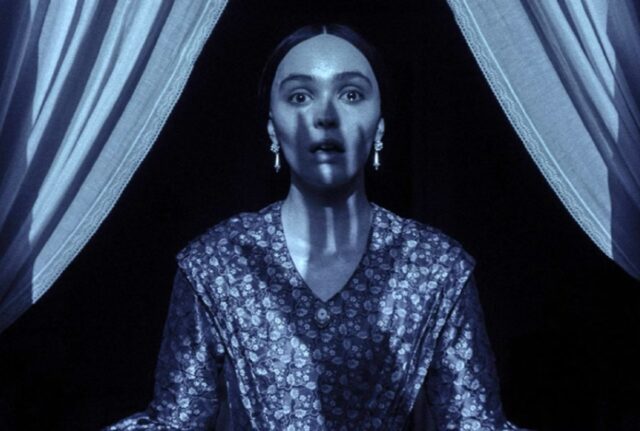
Credit:
Universal Pictures
Director David Eggers can be a polarizing figure for moviegoers. How much you enjoyed The Witch, The Northman, or 2019’s The Lighthouse (inspired by a real-life 1801 tragedy involving two Welsh lighthouse keepers trapped in a storm) likely depends on your taste for Eggers’ dark mythic sensibility and penchant for hallucinatory imagery. With Nosferatu—a daring reinvention of the seminal 1922 German silent film by F.W. Murnau, based in turn on Bram Stoker’s 1897 novel Dracula—Eggers leans fully into supernatural gothic horror, with spectacular, genuinely scary results.
It’s hard to go wrong with Bill Skarsgård in the lead role of the vampire Count Orlok; his portrayal of Pennywise the Clown in It is still giving people nightmares. Lily-Rose Depp and Nicholas Hoult also shine as Ellen (the unfortunate object of Orlok’s murderous pursuit, slowly driven mad as he closes in) and her hapless fiancé, Thomas, as does Willem Dafoe as the eccentric Professor von Franz. The basic outlines of Stoker’s plot remain, but Eggers has also infused his film with a visual language that evokes both Murnau’s distinctive German expressionism and the Eastern European folklore that inspired Stoker. This is not so much a remake as an innovative re-imagining by a director whose sensibility is perfectly suited to the task.
—Jennifer Ouellette
Monkey Man
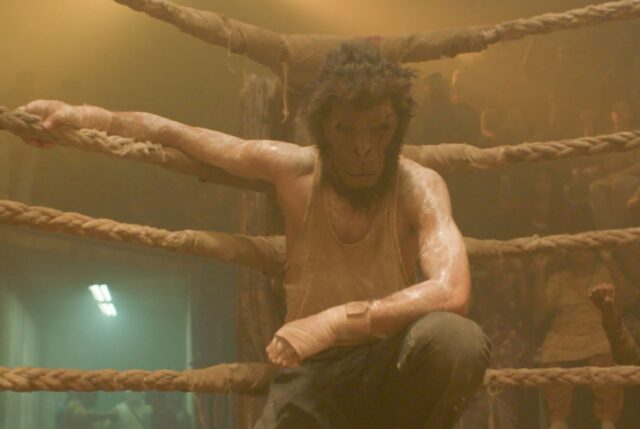
Credit:
Universal Pictures
Dev Patel’s latest film completely missed me when it got a limited cinematic release this spring. Instead, I stumbled across it streaming on Peacock and went in cold with nothing more than good vibes toward the actor—and now director—based on his performances in films like Chappie. Which made the initial fight, with Patel wearing a monkey mask, a little confusing at first.
Monkey Man is a good old revenge film, following Patel’s character as he negotiates the underworld of the fictional Indian city of Yatana in a quest to avenge his mother, who was brutally murdered when their village was ethnically cleansed by Hindu nationalists. The fight scenes are frenetic and visceral, influenced by films like John Wick but also The Raid, and the hand-to-hand combat in Marvel’s Daredevil. But it’s also a film with a political message or two. Perhaps the best way to describe it is like a cross between John Wick and RRR—if you liked both of those films, you’ll probably love Monkey Man.
—Jonathan Gitlin
The Three Musketeers Part 2: Milady
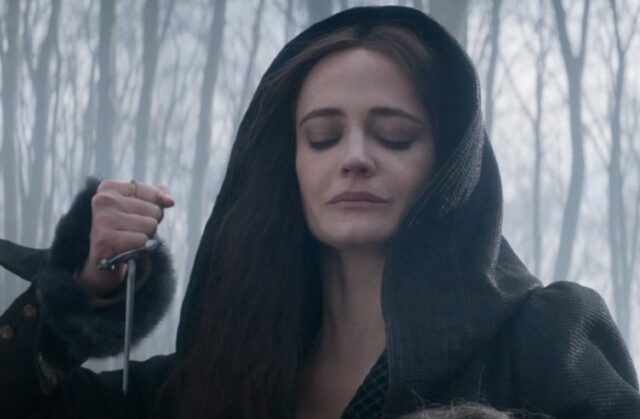
Credit:
Pathe
Last year, The Three Musketeers Part 1: D’Artagnan made our annual list, in which we celebrated finally having a quintessential French adaptation of Alexandre Dumas’ classic 1844 novel to rival Richard Lester’s iconic two-part 1970s US adaptation. Part 2: Milady covers the events of the second half of the novel, as D’Artagnan (Francois Civil) and his compatriots rush to rescue his kidnapped lover, Constance (Lyna Khoudri), and prevent the assassination of the Duke of Buckingham (Jacob Fortune-Lloyd) by Eva Green’s deliciously wicked Milady de Winter.
Both films were shot back to back, so the same top-notch storytelling and able performances are present. And director Martin Bourboulon heard the complaints about how dark the first installment was in places and corrected the colorimetry. My only quibble: unlike Part 1, Part 2 actually deviates quite substantially from the source material, particularly with regard to the fates of Constance and Milady. In fact, the finale is left open-ended. Could a third installment be in the offing? (An adaptation of Dumas’ The Count of Monte Cristo is releasing soon by the same team.) Still, it’s a magnificent, hugely entertaining film that pairs beautifully with its predecessor.
—Jennifer Ouellette
Late Night with the Devil

Credit:
IFC Films
Framed as a documentary with behind-the-scenes found-footage elements, Late Night with the Devil tells the story of a late-night talk show, Night Owls with Jack Delroy, and its producers’ attempts to put on an unforgettable Halloween night show in 1977. Things start out in an appropriate-for-TV spooky tone, and the movie’s ’70s aesthetic really sells the vibe.
But as the show goes on, the guests get progressively weirder, the segments become more sinister, and it starts to be difficult to tell if the guests are putting on an act or if something darker is going on. Is the host really going to try to commune with the devil on a late-night variety hour? That quickly becomes the plan. I won’t spoil more than that, but I found the ride compelling from start to finish.
This was a good year for horror movies, and Late Night with the Devil was one of my favorites. David Dastmalchian’s performance as the host was a real standout. The whole package is great fun, and everything wraps up in a blessedly tight 95 minutes (man, movies are way too long these days). Genre fans shouldn’t miss this one.
—Aaron Zimmerman
Wicked Part 1

Credit:
Universal Pictures
I was lucky enough to see Wicked on Broadway near the end of Idina Menzel and Kristen Chenoweth’s iconic runs originating the characters of Elphaba and Glinda for the stage. Since then I’ve seen the live version of the musical five more times at various points and listened to the soundtrack hundreds of times more. Despite all that, the unavoidable marketing for this movie had me worried it was going to be an overproduced cinematic flop on the order of Cats or Dear Evan Hansen.
Happily, my worries were overblown. Cynthia Erivo and Ariana Grande bring real chemistry and pathos to the show’s main roles and have the pipes to pull off some extremely difficult songs without breaking a sweat. I was also impressed with the movie’s top-notch choreography, which evokes the golden age of silver screen musicals and demands to be seen in a theater with as big a screen as possible.
My only quibble with this adaptation is the pacing, which suffers thanks to a few unnecessary backstory additions and a few too many long, lingering shots and pregnant pauses that even mess up the flow of some iconic songs. Why they decided to shoot “Defying Gravity” like an action movie—and decided not to cut to the credits right after Erivo’s soaring final note—will always be a huge mystery to me. A version of this movie that was about 45 minutes shorter would have been perfect. The version we got was instead just a very good adaptation of a very good musical.
—Kyle Orland
The Wild Robot
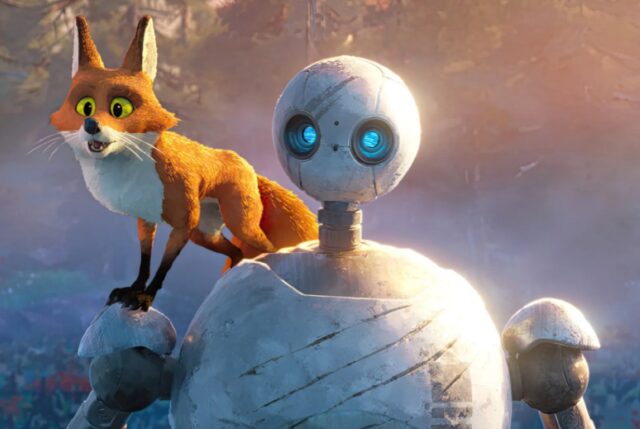
Credit:
Universal Pictures
This is the final film to be animated entirely in-house at DreamWorks, based on the 2016 novel of the same name by Peter Brown. It features a plucky service robot called ROZZUM unit 7134, aka “Roz” (voiced by Lupita Nyong’o), who gets shipwrecked on a desert island and must learn to adapt. Along the way, Roz befriends some of the local wildlife—Pedro Pascal voices a mischievous red fox named Fink, with Bill Nighy voicing an elderly goose named Longneck—and adopts an orphaned goose named Brightbill (Kit Connor).
Director Chris Sanders was inspired both by classic Disney animated movies and Hayao Miyazaki, creating what he described as “a Monet painting in a Miyazaki forest” for the visual CGI style of The Wild Robot. It makes for quite a striking combination. Plot-wise, there are elements of E.T. and Pixar’s Wall-E here, but Sanders has created a unique take on those tropes and standout characters that are all his own. Along with Inside Out 2 (see below) this is one of the best animated movies of the year.
—Jennifer Ouellette
Deadpool & Wolverine

Credit:
Marvel Studios
The Deadpool & Wolverine movie was a long time coming. That’s not just because Deadpool (Ryan Reynolds) has been making comically obsessive requests to hang out with Hugh Jackman’s Wolverine since the first Deadpool. But the movie itself feels like an homage to the comic book movies before it, combining fan service with a true, sensible (for a comic book movie) plot and a satisfying conclusion that leaves the characters more mature and content than when we last saw them.
Some may be concerned about the return of Jackman, considering his version of Wolverine was supposed to come to a dramatic and spectacular conclusion with the 2017 movie Logan. In fact, the movie is about Deadpool’s universe crumbling (as related by the Time Variance Authority from the show Loki) due to that version of Wolverine no longer being around. But Deadpool & Wolverine handles this well by visiting the end location of Logan and establishing that Jackman is now playing a Wolverine from an alternate universe and is still highly capable of playing the fierce, acrobatic, and iconic X-Man.
Deep down, the movie is about two men who have typically felt alone and unworthy of the people they love finding new paths to manhood, self-respect, and acceptance of their roles in the world. But for comic book fans, it’s really about action-packed nostalgia. The good feels are bolstered by epic cameos of characters you might have forgotten were Marvel-related at all (if possible, I highly recommend seeing this movie spoiler-free).
Unexpectedly one of the best parts of the movie comes from the ending credits. It features behind-the-scenes footage from 12 X-Men movies going back 24 years. With clips featuring the likes of a young Jackman, Halle Berry (who has played Storm), and Patrick Stewart (who has played Professor X), it’s a reminder of a time when comic books felt new and bold and a tribute to how long all of us—from the actors, to the crew, to the audience—have been on this journey. Ultimately, Deadpool & Wolverine provides a fulfilling and happy goodbye to all those pieces.
—Scharon Harding
Nickel Boys
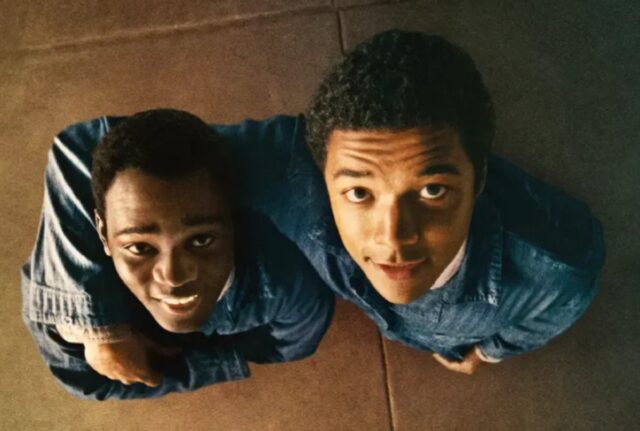
Credit:
Amazon MGM Studios
Colson Whitehead won the 2020 Pulitzer Prize for his 2019 novel The Nickel Boys, based on Florida’s infamous Arthur G. Dozier School for Boys, a relic of the Jim Crow era. The school’s staff inflicted all manner of abuse, beatings, rapes, and torture on its unfortunate charges and even murdered many of them; as of 2012, nearly 100 deaths had been documented, along with 55 burial sites on school grounds. (There could be as many as 27 more burial sites, based on ground-penetrating radar surveys.)
A young Black boy named Elwood (Ethan Cole Sharp) in 1962 is a promising student until he is mistakenly arrested for being an accomplice to car theft. He’s sent to the segregated Nickel Academy, where he makes friends with Turner (Brandon Wilson). (Daveed Diggs plays a grown Elwood, now a successful businessman in New York City.) The two witness and experience so much abuse that Elwood finally decides to fight back, despite the risk of retaliation by the school’s administrators.
This is powerful subject matter, deftly handled by director RaMell Ross, who manages to tell a compelling story without turning it into what’s become known as “Black trauma porn.” The most controversial aspect of the film is Ross’ choice to shoot it from a first-person point of view with a 1.33:1 aspect ratio. So we see either Elwood speaking in a scene, with Turner off-camera, or vice versa, and the two are only occasionally onscreen at the same time. Some might find this choice annoying, but I found it kept me centered on one boy’s perspective at a time, which served to make the final plot twist all the more satisfying.
—Jennifer Ouellette
Inside Out 2
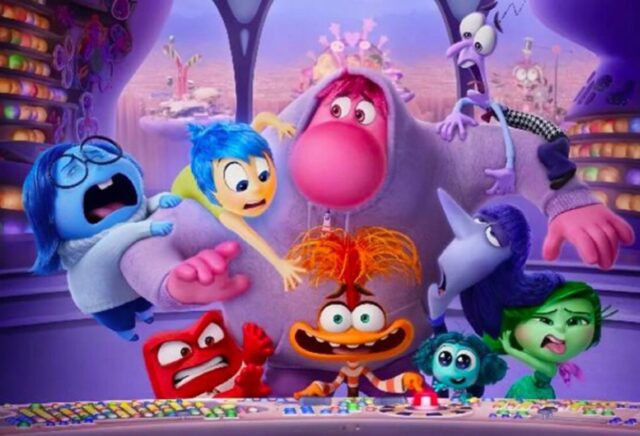
Credit:
Pixar/Disney
I cried multiple times the first time I saw Inside Out in the theater, and still tear up when I watch it at home. So I was prepared to be even more emotional at Inside Out 2, especially given that I’m now the parent of a tween child myself.
I wasn’t quite moved to tears by this tale of Riley struggling with newfound feelings of Anxiety, pushing her to more and more desperate plans to ingratiate herself with a group of “cool” kids. But I will admit that my heart did break a little during the climactic scene, which shows the inner turmoil inherent to a true panic attack in a way that can resonate with both children and adults.
There were a couple of inconsistent attempts at comedy in Inside Out 2 that felt like they came from a completely different movie. And I found myself missing the original voice actors for Disgust and Envy, as well as Lewis Black’s original Anger voice (which has noticeably diminished as he’s aged). But none of this was enough to diminish the strong emotional core of a movie that will be relatable to anyone who’s busy growing up or just remembers doing the same.
—Kyle Orland
And now… our pick for the best movie of 2024:
Dune: Part 2
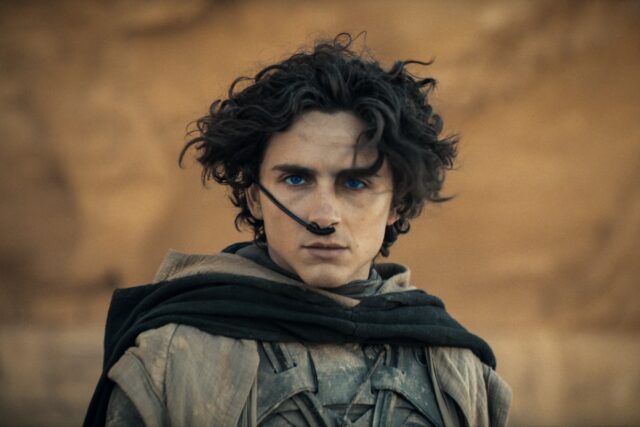
Credit:
Warner Bros.
David Lynch’s 1984 Dune was a huge chunk of my high school experience, being as I was part of a small group of friends obsessed with the movie—with its incredible visuals, its outsize but seemingly earnest camp, and its absolutely endless quotability. We sprinkled the movie’s words throughout our conversations, experimented with re-creating portions of it with video cameras and action figures, and reveled in exploring something that felt truly ours—largely because the movie was rejected and forgotten by so many others.
If anything, Lynch’s Dune put paid to the notion that Frank Herbert’s novel could be successfully ported to film. It’s a heroic effort, but it’s a bloody mess. And I would have gone to my grave thinking that Dune remained one of the most unfilmable classic bits of 20th-century science fiction—until Denis Villeneuve went and made the dang thing anyway.
The viscerally visual filmmaker who famously hates dialog did something I genuinely believed was impossible: He gave us a (two-part) translation of the book to screen that is both faithful to the original, and also shows us new things that feel like they’ve been there all along, waiting to be discovered.
Dune: Part Two is a masterpiece. It is the product of craftsmen at the top of their crafts, including and especially the craftsman in the director’s seat. Dune gives us a peek at exactly what Villeneuve means when he talks about the “paradise” of a movie without dialogue—there are long, almost Tarkovsky-esque stretches where vast cyclopean imagery juxtaposes itself against tiny human tableaus, underpinned by nothing but Hans Zimmer’s transcendent music. And it’s not just that these stretches work—they work fantastically well!—it’s that in many ways they carry the movie to places that rapid-fire Aaron Sorkin-style banter could never reach. The visuals show us things—things words never could.
Speaking of Hans Zimmer—let’s talk about that score. It’s an absolutely masterful creation that figures so prominently in our experience of Arrakis that it becomes a character itself, a second unseen narrator who alternates with poor unloved Irulan as the voice of the world. Paul and Chani’s love theme, a composition titled “A Time of Quiet Between the Storms,” is one of the most powerfully emotional pieces of music I’ve ever heard, embodying almost the platonic ideal of pure, mournful longing; the emotional hammer-blow delivered by its apocalyptic, civilization-ending reprise “Kiss the Ring” left me speechless and wide-eyed in the theater.
Folks, Dune: Part Two is a good movie. It (and its prequel) is one of the best movies I’ve ever seen, successfully adapting a difficult book into a movie and retaining the bits that mattered most. Villeneuve was born to make these films, and Zimmer was born to score them. They are true art. If anything, I’m even more excited now about another of Villeneuve’s upcoming projects: he’s taken over the reins for the long-stalled, long-rumored, finally-happening-for-real adaptation of Arthur C. Clarke’s Rendezvous with Rama, a book that heavily imprinted itself on me in fourth grade and that I’ve reread at least once a year for most of my life. If Villeneuve brings his A-game, I have the highest hopes for Rama.
—Lee Hutchinson
Jennifer is a senior reporter at Ars Technica with a particular focus on where science meets culture, covering everything from physics and related interdisciplinary topics to her favorite films and TV series. Jennifer lives in Baltimore with her spouse, physicist Sean M. Carroll, and their two cats, Ariel and Caliban.




